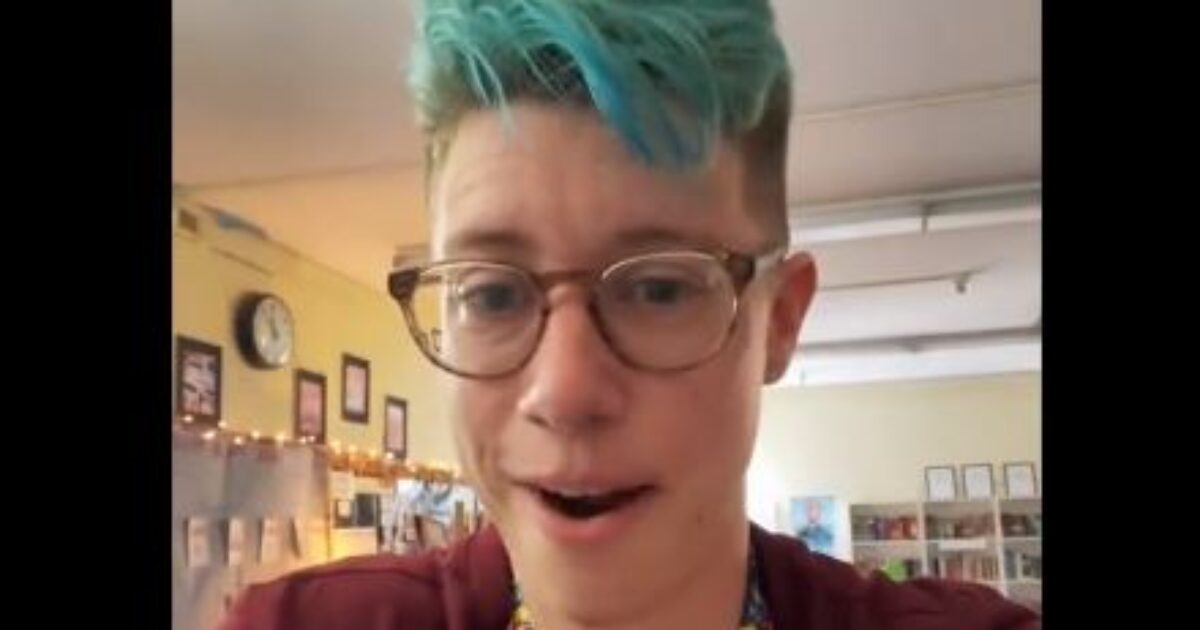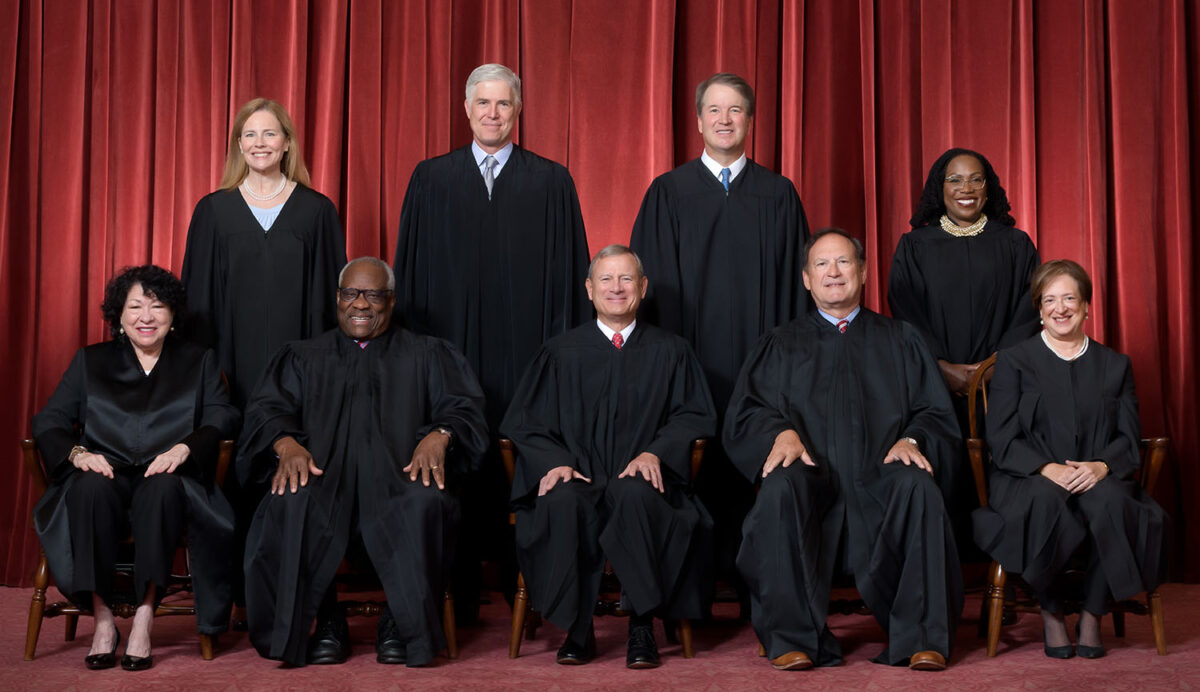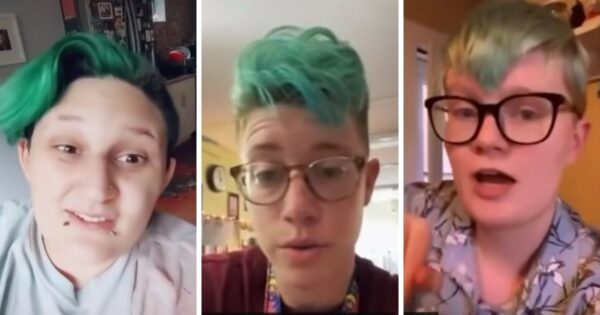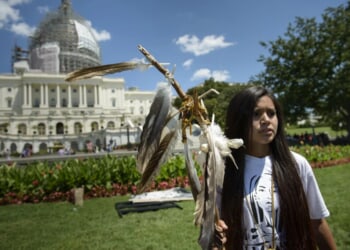
In a recent case, Lee v. Poudre School District R-1, Colorado parents Jonathan and Erin Lee, along with Nicolas and Linnaea Jurich, sued their school district, alleging it groomed their daughters into the LGBTQ cult through secretive Gender and Sexualities Alliance (GSA) meetings. They claimed teachers misled their children about gender identity, encouraged them to hide it from parents, and caused severe emotional harm, including suicidal ideation.
Yet, on April 22, 2025, the Tenth Circuit Court of Appeals upheld the dismissal of their lawsuit because, according to the Court, the parents failed to prove the district’s policies directly caused their injuries.
Let’s rewind to 1992’s Lee v. Weisman, when the U.S. Supreme Court swooped in to “save” a defenseless girl from hearing a rabbi’s invocation at her graduation. The Court declared that even a brief prayer violated the First Amendment because of the potential coercive effect on the poor defenseless girl who was subjected to hear the Name of God. The Court feared that – God forbid – an atheist student may be persuaded to believe in God at a public school, and the Court could not take that chance. The Supreme Court sent a clear message: God has no place within America’s schools.

Credit: Fred Schilling, Collection of the Supreme Court of the United States.
But today the Courts have no problem with subjecting kids to the gospel of the LGBTQ religious cult. Journalists like Libs of TikTok have exposed the epidemic of blue-haired teachers, faces riddled with piercings, draping pride flags over classrooms and preaching the gospel of gender confusion to vulnerable children. These activists confuse kids—already grappling with the chaos of adolescence—pushing them toward identities and ideologies that tear families apart and in many cases lead to irreparable psychological injuries.

This is far worse than the Rabbi’s short invocation that the Supreme Court called coercive when they put an end to school prayer nationwide. Yet, when parents, like those in Lee v. Poudre, fight back, courts toss their cases. Courts will intervene to banish even the mention of God from the schools. But when it comes to protecting kids from relentless LGBTQ indoctrination, the Courts humbly decide not to get involve and to deprive the parents of their day in court.
The Lee v. Poudre Case: A Disturbing Case of School Grooming
In Lee v. Poudre School District, the parents alleged that a Wellington Middle-High School teacher had private talks with a 12-year-old student, urging her to reject feminine pronouns and inviting her to a “GSA Art Club” meeting that was actually a Gender and Sexualities Alliance session where a teacher lectured kids for 90 minutes about how discomfort with their bodies meant they were likely transgender and at higher risk of suicide. The teacher handed out LGBTQ-themed prizes to students who “came out” as transgender and warned them not to tell their parents, even giving out her personal contact info for secret chats. The 12-year-old, who had never before questioned her gender, declared herself transgender at the meeting but told her parents, who promptly pulled her from the district. Another sixth-grader was told the same alarming messages at similar meetings and spiraled into suicidal thoughts, believing her distress “proved” she was transgender. She later attempted suicide, and her parents also withdrew her from the school.
The parents pointed to district policies, like the Guidelines for Supporting Transgender and Non-Binary Students, which instructed staff to withhold students’ transgender status from parents unless legally required or authorized by the student. They argued these policies enabled a culture of secrecy, allowing teachers to manipulate impressionable kids without parental knowledge. The district defended itself, claiming the policies merely protected student privacy and created a “safe space.”
The Tenth Circuit, however, didn’t even address whether the policies violated parental rights. Instead, it ruled the parents couldn’t prove the district’s policies directly caused the teachers’ actions, like misleading kids about the GSA meetings or discouraging parental disclosure. In a concurring opinion, Judge McHugh acknowledged the policies could implicate parental rights by encouraging secrecy but agreed the parents’ specific injuries weren’t tied closely enough to those policies.
The Controversy: A Double Standard
The controversy in Lee v. Poudre is part of a broader cultural battle. Parents across the country are sounding alarms as schools embrace LGBTQ ideology, often without transparency. Teachers, emboldened by policies like Poudre’s, are accused of grooming kids into a cult-like mindset, convincing them that questioning their gender is a rite of passage and that parents can’t be trusted, actively undermining families.
But in Lee v. Weisman the Supreme Court didn’t hesitate to intervene. A rabbi’s prayer at a graduation was deemed so harmful that it warranted a nationwide ban on school-sponsored religious expression. The Court didn’t dodge the issue with technicalities; it acted decisively to purge God from public schools. Yet, when parents beg courts to protect their kids from ideologues pushing gender confusion, the response is a shrug. The Lee v. Poudre court could have tackled the question of whether schools can constitutionally hide critical information from parents but instead took the easy out, claiming the parents’ evidence didn’t meet the stringent standard for municipal liability.
Why This Matters
The Lee v. Poudre case exposes a double standard in how courts treat schools. When it’s about banishing religion, the judiciary leaps into action, as in Lee v. Weisman. But when schools are accused of grooming kids into the LGBTQ religious cult, courts hide behind legal technicalities, leaving parents powerless. This isn’t just a Colorado problem—it’s a national crisis. Libs of TikTok and others have documented countless teachers openly boasting about “queering” their classrooms, confusing students as young as elementary school age. The harm is undeniable: children suffer mental health crises, families fracture, and parents are left in the dark.
The significance of this case lies in what it reveals about judicial priorities. Courts have shown they’ll reshape school culture to align with secular values but won’t lift a finger to stop what many see as ideological grooming. The Lee v. Poudre ruling sends a chilling message: schools can push radical agendas on kids, and parents have little legal recourse. Until courts take parental rights as seriously as they take the separation of church and state, children will remain vulnerable to the LGBTQ religious cult’s influence in schools, and parents will keep fighting an uphill battle.


















